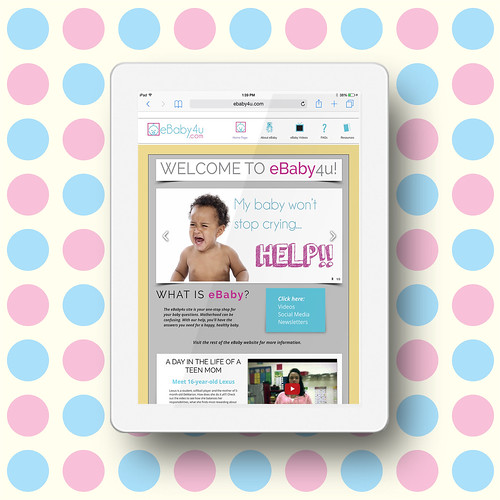
Mothers want what is best for their children, no matter the age of the mother and child. But what happens when teenage or socially disadvantaged mothers do not have the life experience or access to education to make the most informed decision?
eBaby4U, a digital program run through Mississippi State University (MSU), is designed specifically to inform and support African-American teen mothers through an approach that is second-nature to youth: finding information online.
“I first got the idea for eBaby4U after hearing a grad student’s story. When he was in high school, he saw a friend who was a teen mom giving her baby [soda] in a bottle. When he commented that he didn't think this was a good idea, the young mom replied, ‘If it's ok for me, why wouldn't it be ok for my baby?’” said Kathleen Ragsdale, project lead and associate research professor at MSU.
“I knew immediately that if one teen mother was using this kind of logic to inform her decisions, there were probably many other teen moms doing the same. I walked straight back to my office and began writing the proposal that would become the eBaby4U project funded by the National Institute of Food and Agriculture (NIFA).”
This infant feeding and health outcomes project was funded in 2012 through the NIFA Rural Health and Safety Education program for $158,338. eBaby4U fills an important cultural gap in outreach to African-American teen mothers, a demographic that has extremely low breast-feeding rates.
A community advisory board made up of minority mothers in their teens and early twenties advised Ragsdale and her team during the content development and design process. Their involvement maximized eBaby4U’s applicability and cultural relevance to African-American mothers and their peers. The project now has nine teen parenting education videos that are available on the eBaby4U website and on YouTube, conducts surveys and in-depth interviews with minority mothers ages 13-25 in Mississippi, and implements social media campaigns to better connect with hard-to-reach African-American teen mothers.
“My favorite thing is that when people see the site and view the videos they get excited, which shows that our team has produced something in eBaby4U that resonates with folks—from teen moms to public health promotion experts,” Ragsdale said. “This kind of positive affirmations for eBaby4U fuels our passion. We are constantly working to sustain and expand the project's utility as a tech-based tool that improves health outcomes for teen moms and their babies.”
NIFA invests in and advances agricultural research, education, and extension and seeks to make transformative discoveries that solve societal challenges.
